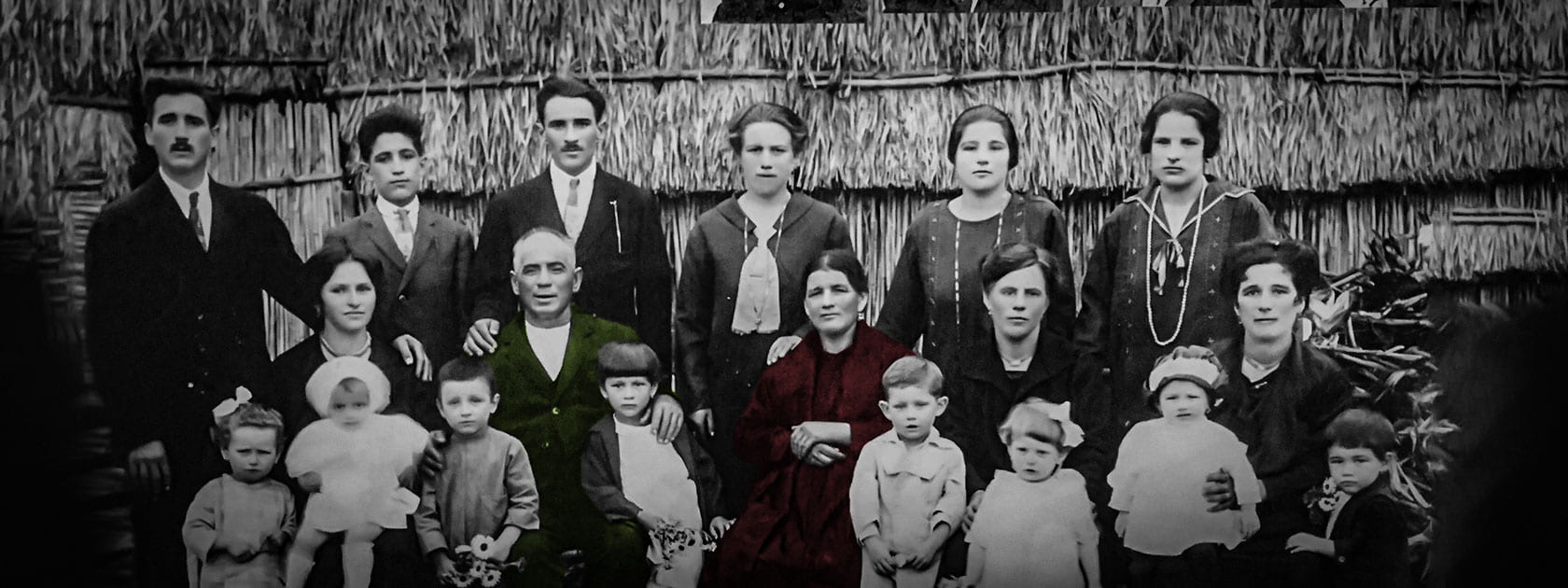Date
June 28, 2011
Maker
Columbus Centre
Accession#
ICEA2011.0052.0001
Interview With Teresa Pateras
Teresa Pateras was born in the Montreal neighbourhood of Mile End in 1929. She was born to Salvatore Pateras, a tailor who was born in Italy, and his wife, who was born in Montreal to Italian parents. Teresa’s early life was centered around her large extended family. Her grandparents had 12 children, and some of her aunts and uncles were her own age. She herself had two younger brothers. Her father worked as a tailor, and eventually he operated his own clothing manufacturing business which Teresa worked at as a bookkeeper. Teresa’s father took care not to be involved with any of the fascist organizations that sprang up around the time of Mussolini’s rise to power. He was adamantly non-political, but was nonetheless implicated as a fascist when he happened to pose for a photograph at a church feast day with some men who were known fascists. The Royal Canadian Mounted Police (RCMP) arrested Salvatore from his workplace on June 10, 1940 and later came to search his home. He was interned for nine months at Petawawa. Although he had been the main breadwinner in his family, his wife and children managed well financially in his absence. When Teresa thinks about that time, she is not sure how her mother was able to maintain the family’s standard of living during that year. She speculates that her grandparents helped. She also relates that her grandfather bought her mother a house after she and the children were evicted from their apartment after Salvatore’s arrest. In terms of her father’s internment, Teresa believes that the men were well treated. However, she also thinks that the Canadian government shirked its responsibility by wrongfully arresting men who had nothing to do with fascist organizations, and that it should have researched its arrests more carefully.
In this opening clip Teresa Pateras introduces herself and speaks about her family and the Montreal neighbourhood she grew up in.
Teresa Pateras speaks about her father’s work as a tailor.
Teresa Pateras talks about the local men who were involved with the fascio and processions and schools they would sponsor. She also describes how her father was an anti-fascist and would not let her participate in the school or any events.
Teresa Pateras speaks about her grandparents and mentions that the family mainly spoke Italian at home.
Teresa Pateras describes how she was treated by her neighbours both before and after her father’s internment.
Teresa Pateras speaks about her father’s migration to Canada.
Teresa Pateras speaks about the local men who were part of the fascio and the dopolavoro. She also mentions that her father was never associated with any of the Italian organizations in Montreal.
Teresa Pateras recalls the local processions and Gentile Dieni’s band.
Teresa Pateras describes how there was no fear at the beginning of the war because people did not expect the war to affect Canada.
Teresa Pateras speaks about the day that her father was arrested and the photograph she believes lead to his arrest.
Teresa Pateras shares her reaction to her father’s arrest.
Teresa Pateras describes how her family found out where her father had been taken. She then goes on to describe his return home.
Teresa Pateras describes how her family was evicted from their home while her father was interned.
Teresa Pateras speaks about her father’s internment experience and how he described it as a holiday.
Teresa Pateras shares the stories she heard about the internment experience after her father’s release. She also describes how there was no change in her father’s personality and how life went back to normal.
Teresa Pateras briefly speaks about local informants.
Teresa Pateras shares her thoughts on the internment of Italian Canadians.
In closing Teresa Pateras reflects on the internment period and how her mother coped in her father’s absence.



